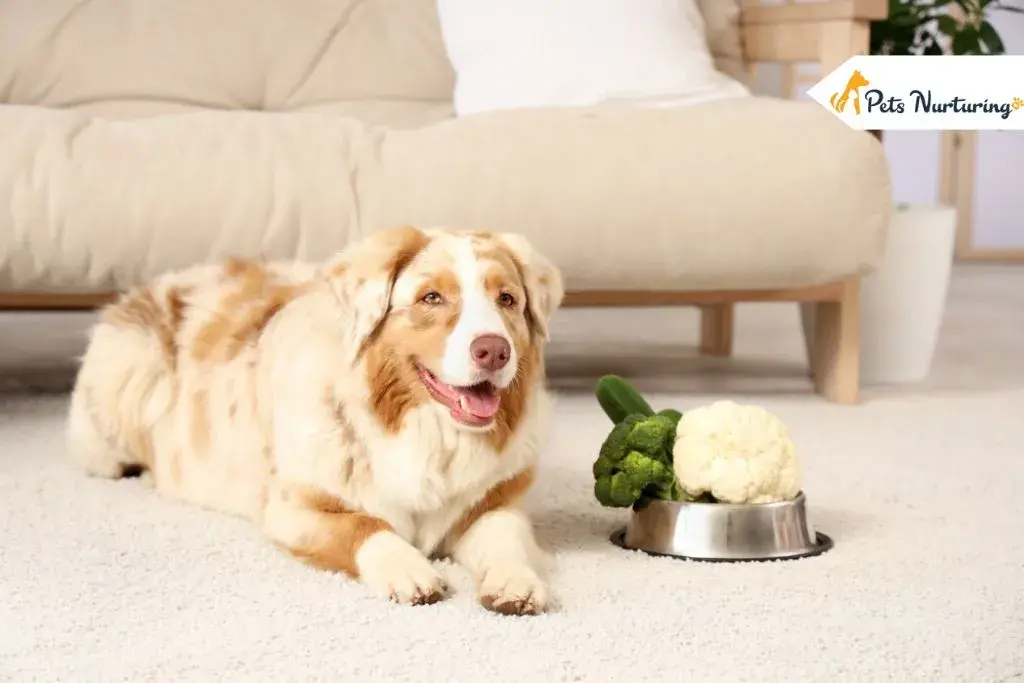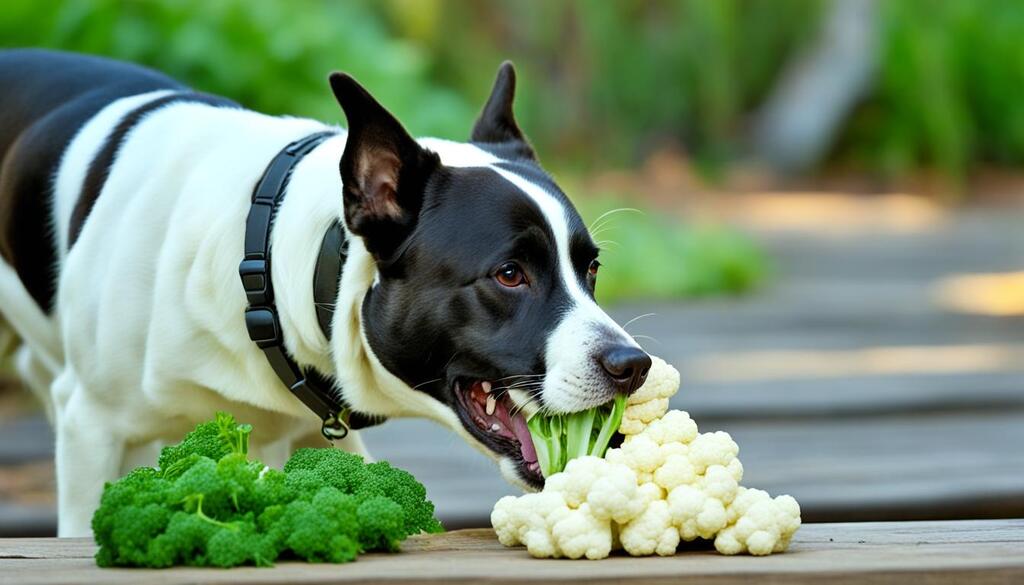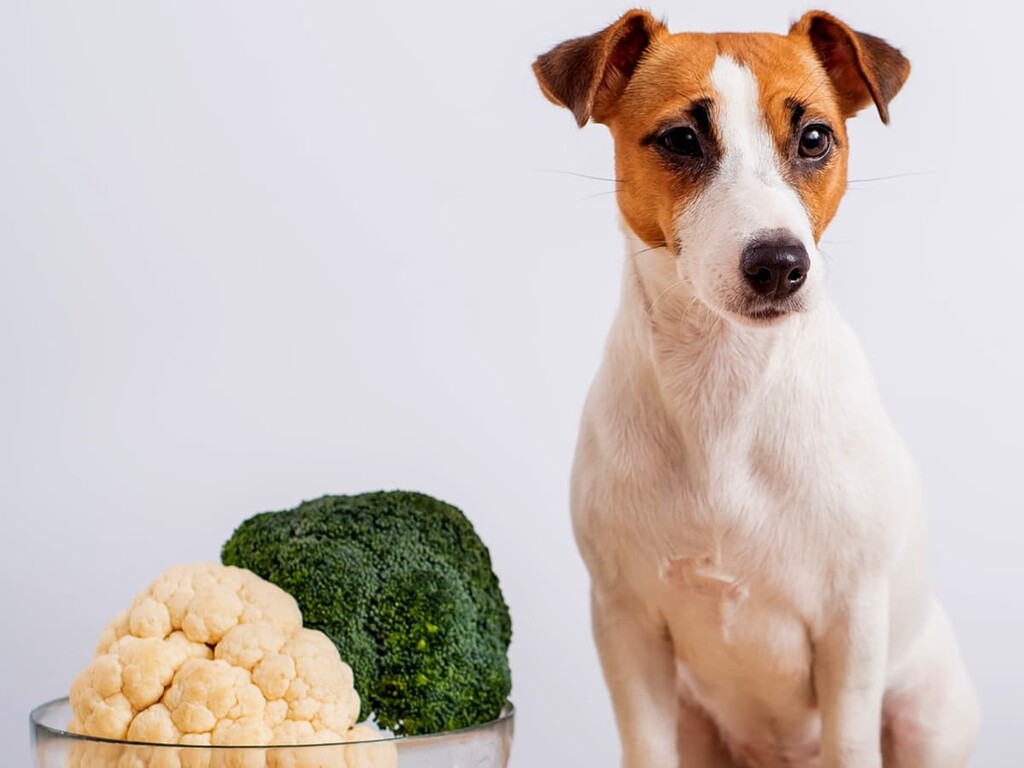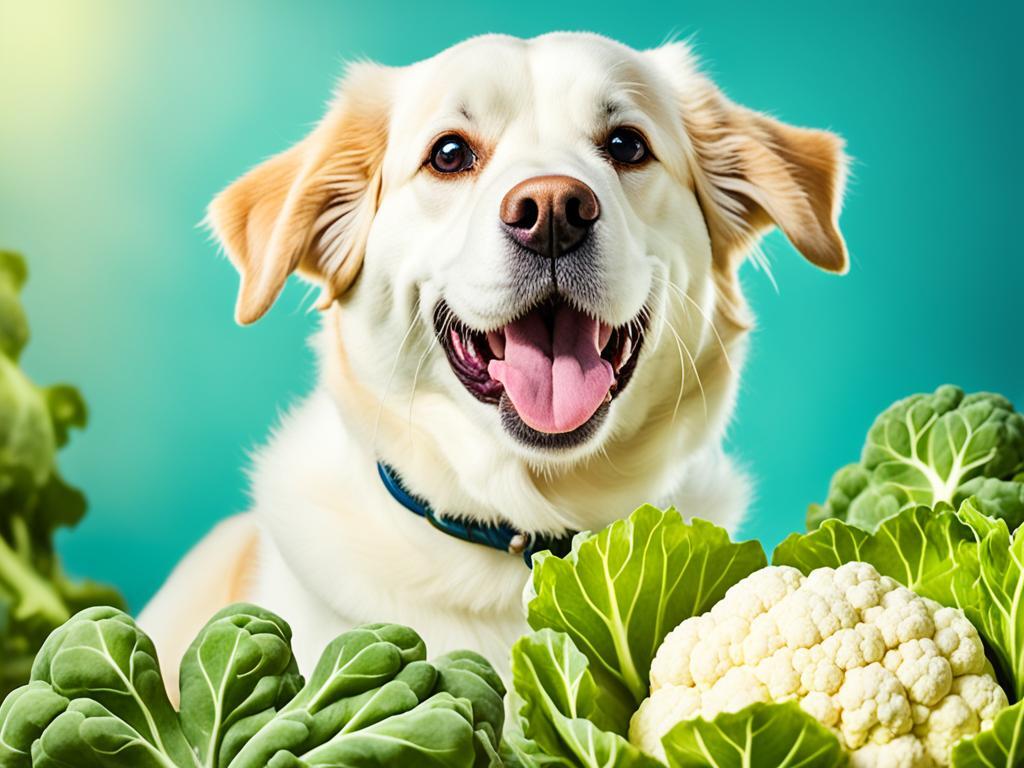
Curious whether dogs can enjoy cauliflower? This question often leaves pet owners scratching their heads. Ensuring our canine friends eat safely is a top priority for any responsible dog guardian. Cauliflower, a staple in human diets, naturally piques the interest of dog owners. In this guide, we’ll thoroughly explore cauliflower’s nutritional benefits, potential risks, and safe ways to include it in your dog’s meals.
Cauliflower: A Nutritious Vegetable
Cauliflower, a standout member of the cruciferous vegetable family, is known for its creamy white florets and mild, slightly nutty flavor. This vegetable is a nutritional powerhouse, loaded with essential vitamins and minerals like vitamin C, vitamin K, folate, fiber, and antioxidants. These nutrients support human health by boosting the immune system, strengthening bones, and promoting overall well-being. But what about our furry friends? Can dogs also benefit from this versatile vegetable, or are there hidden risks? In this detailed exploration, we’ll reveal how cauliflower can fit into your dog’s diet, the specific health benefits it offers to canines, and important precautions to ensure their safety.
Can Dogs Eat Cauliflower? The Verdict is in

Yes, dogs can eat cauliflower! This cruciferous vegetable is not only safe for canine consumption but also brings some nutritional perks to the table. Loaded with vitamins like C and K, along with fiber and antioxidants, cauliflower can be a healthy addition to your dog’s diet.
However, as with any human food, it’s crucial to practice moderation. Overfeeding cauliflower can lead to digestive issues such as gas and bloating, making your dog uncomfortable. To ensure your pet enjoys the benefits without the downsides, it’s important to know how to properly incorporate cauliflower into their meals.
So, whether you are serving raw, steamed, or roasted, understanding the best preparation methods and portion sizes will help you keep your dog healthy and happy.
Nutritional Benefits of Cauliflower for Dogs
While cauliflower might not be a staple in your dog’s diet, it can offer several health benefits when fed in moderation. Let’s explore the nutritional perks this vegetable provides:
- Fiber: Cauliflower is a good source of dietary fiber, which aids in digestion and promotes healthy bowel movements. Fiber helps prevent constipation and diarrhea, ensuring optimal gut health for your furry friend. It also supports a balanced microbiome, which is crucial for your dog’s overall health.
- Vitamins and Minerals: The vitamins and minerals found in cauliflower, such as vitamin C, vitamin K, and potassium, support various bodily functions. Vitamin C is essential for a strong immune system, aiding in the fight against infections and illnesses. Vitamin K plays a role in bone health and blood clotting. Potassium helps maintain healthy heart function and muscle activity, ensuring your dog stays active and energetic.
- Antioxidants: Cauliflower contains antioxidants like glucosinolates and isothiocyanates, which help combat oxidative stress and reduce inflammation. This can contribute to a healthier coat, skin, and overall vitality.
- Low in Calories: Cauliflower is a low-calorie vegetable, making it a suitable treat for dogs watching their weight. It can be a satisfying snack without adding excessive calories to their diet, helping to maintain a healthy weight and prevent obesity-related issues.
- Hydration: With its high water content, cauliflower can help keep your dog hydrated, especially during hot weather. Adequate hydration is essential for maintaining healthy organ function and overall well-being.
- Digestive Health: The combination of fiber, water, and essential nutrients in cauliflower supports a healthy digestive system. It can help regulate bowel movements, prevent gastrointestinal discomfort, and improve nutrient absorption.
How to Safely Introduce Cauliflower to Your Dog’s Diet

Adding new foods to your dog’s diet requires a careful and thoughtful approach. Here’s a detailed guide to help you safely introduce cauliflower to your dog’s diet:
- Start Small: Begin with a modest serving of cooked, plain cauliflower. A small, bite-sized piece is enough for the first trial. This cautious approach helps you check your dog’s reaction without overwhelming their system.
- Monitor for Reactions: After the initial serving, keep a close eye on your dog for any signs of adverse reactions. Look for symptoms such as vomiting, diarrhea, excessive scratching, or unusual lethargy. If you notice any of these signs, discontinue feeding cauliflower immediately and consult your veterinarian for advice.
- Gradual Increase: If your dog shows no negative reactions, you can slowly increase the amount of cauliflower over several days. This gradual introduction helps your dog’s digestive system adjust to the new food.
- Cooked is Best: Cooked cauliflower is easier for dogs to digest than raw cauliflower. Steaming or boiling the cauliflower softens the fibers, making it gentler on your dog’s stomach. Cooking also helps eliminate potential bacteria that might be present in raw vegetables.
- Avoid Seasonings: Always serve cauliflower plain. Seasonings, spices, and additives can be harmful to dogs. Ingredients like garlic, onions, and certain herbs can be toxic, so it’s crucial to avoid them altogether. Plain, unseasoned cauliflower is the safest option.
- Serve in Moderation: Even though cauliflower is healthy, it should be given in moderation. Too much cauliflower can cause digestive issues such as gas and bloating. As a rule of thumb, treats, and extras should make up no more than 10% of your dog’s daily caloric intake.
- Incorporate Variety: While cauliflower can be a nutritious addition, it should not replace a balanced diet. Use it as an occasional treat or supplement to their regular dog food. Providing a variety of vegetables can ensure your dog receives a range of nutrients.
By following these steps, you can safely introduce cauliflower into your dog’s diet, allowing them to enjoy its nutritional benefits without any adverse effects. Remember, every dog is different, so always tailor your approach to your dog’s specific needs and consult your veterinarian if you have any concerns.
Can Dogs Have Raw Cauliflower?
While dogs can technically eat raw cauliflower, it’s generally wiser to serve it cooked. Cooking cauliflower breaks down the tough fibers, making it gentler on your dog’s digestive system and easier for them to process. Raw cauliflower, while not inherently dangerous, can be harder to digest and may lead to gastrointestinal discomfort. Moreover, cooking reduces the risk of bacterial contamination, which is a concern with any raw vegetable. By steaming, boiling, or roasting cauliflower until tender, you ensure that your dog can enjoy the nutritional benefits of this vegetable without any unnecessary risks.
Is Cauliflower Good for Dogs?

When served in moderation and prepared properly, cauliflower can be a nutritious addition to your dog’s diet. This protean vegetable offers several health benefits and can make for a delightful treat. However, it’s crucial to remember that cauliflower should complement your dog’s regular balanced diet, not replace it. The primary focus should always be on providing a well-rounded diet tailored to your dog’s specific nutritional needs.
Does Cauliflower Cause Gas in Dogs?
A frequent worry among dog owners is whether cauliflower can cause gas in their pets. While cauliflower can contribute to gas and bloating, especially if given in large amounts or raw, it’s not a universal outcome. If your dog experiences excessive gas after consuming cauliflower, it might be wise to cut back on the quantity or consider eliminating it from their diet entirely. The key is to observe your dog’s reaction and adjust accordingly.
Is Cauliflower Bad for Dogs?
While cauliflower is generally safe for dogs, moderation is crucial when incorporating it into their diet. Overfeeding cauliflower or giving it to dogs with certain medical conditions can lead to digestive issues. Paying attention to how your dog reacts and adjusting their diet accordingly is essential. If you notice any adverse effects or have concerns about your dog’s health or digestion, consult your veterinarian for guidance.
Alternatives to Cauliflower for Dogs
Cauliflower can be a beneficial treat for your dog, but it’s crucial to diversify their vegetable intake to achieve a well-rounded diet. Mixing different vegetables, such as carrots, green beans, and sweet potatoes, ensures your dog receives a broad spectrum of essential vitamins and minerals. Each of these vegetables offers distinct health benefits and contributes to your dog’s overall vitality and well-being. By providing a variety of veggies, you support not only their nutritional balance but also their overall health.
Conclusion
Can dogs eat cauliflower? Yes, dogs can eat cauliflower, but it’s important to feed it to them in moderation and with care. When introduced appropriately, cauliflower can provide valuable nutritional benefits. By being aware of the potential risks and adhering to the guidelines in this blog, you can safely add cauliflower to your dog’s diet. Ensuring your dog enjoys a diverse range of vegetables is crucial for maintaining their overall health and well-being. A well-rounded diet, rich in various veggies, supports your dog’s happiness and long-term vitality.
In Case You Missed It!











